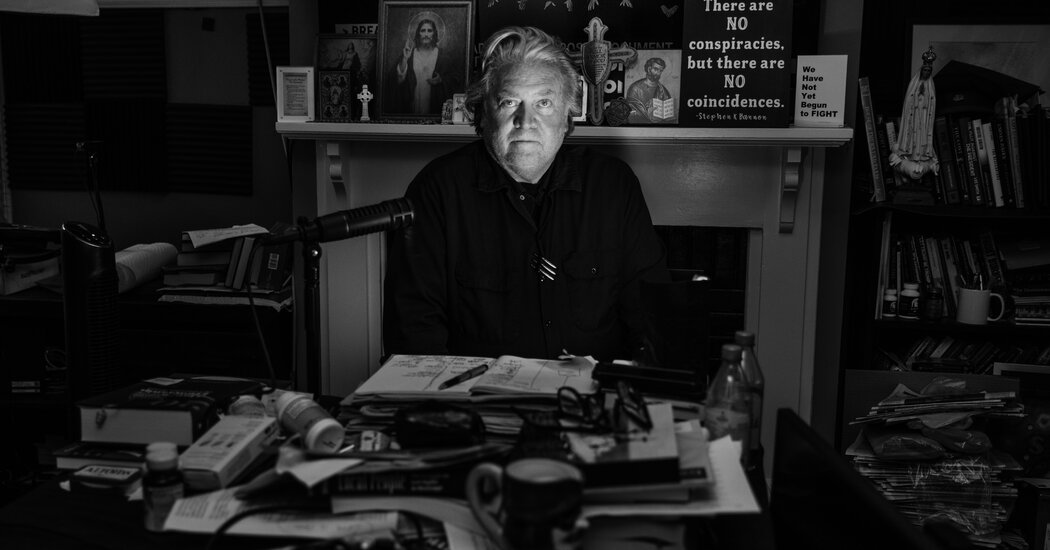My Unsettling Interview With Steve Bannon

I felt like I was talking with Leon Trotsky in the years before the Russian Revolution.
I was sitting in Steve Bannon’s Washington living room in 2019. His stint in Donald Trump’s White House had ended ingloriously, but he had resumed his self-appointed role as populism’s grand strategist, its propagandist, its bad-boy visionary. He sat there that day sketching out his plans for how MAGA-type movements could take over the world.
By then populists had already racked up some big wins — Brexit in Britain, Trump’s victory in 2016. Right-wing populists were in power in Hungary and Poland, Giorgia Meloni’s Brothers of Italy party was surging and populists were rising across Latin America. Bannon knew I opposed him in every particular and abhorred much of what he said, but he laid out his grand vision cheerfully, confidently. He didn’t seem concerned about old-fashioned conservatives, moderates and classical liberals like me; we were destined for the ash heap of history.
I decided to check in with Bannon again about a week ago. This year, populists have scored yet another string of triumphs and a second Trump victory is possible or even probable this November. I found Bannon, currently the host of the podcast “War Room,” to be embroiled and embattled as usual. He’s going to prison Monday, to begin serving a four-month sentence for contempt of Congress. If anything, he is more confident than ever.
What follows is a transcript of our conversation, edited for clarity and length — and to remove the F-bombs that Bannon dropped with machine gun regularity. I should emphasize that I wasn’t trying to debate Bannon or rebut his beliefs; I wanted to understand how he sees the current moment. I wanted to understand the global populist surge from the inside. What he told me now seems doubly terrifying, given Joe Biden’s performance at the first presidential debate.
DAVID BROOKS: Since we last spoke, in fact in just the past few months, there have been populist victories in the Netherlands, with Geert Wilders. We have the Chega movement doing well in Portugal, with the young especially. In Germany, the ultra-right-wing Alternative for Germany surged in last month’s European parliamentary elections. In France, Marine Le Pen’s populist party also triumphed in the European election, a result that prompted President Emmanuel Macron to call new national elections and throw the entire French political system into meltdown. In the U.K.’s forthcoming national elections, Nigel Farage’s Reform Party is on pace to win seats for the first time. So if you’re a historian telling the big story of what’s happening, what would it be? What’s the core narrative here?
STEVE BANNON: Well, I think it’s very simple: that the ruling elites of the West lost confidence in themselves. The elites have lost their faith in their countries. They’ve lost faith in the Westphalian system, the nation-state. They are more and more detached from the lived experience of their people.
